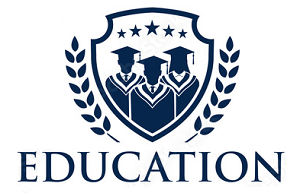
Accelerating Access to Higher Education through Early College Initiatives
The concept of “early college initiatives” has grown in popularity recently to help students transition from high school to college. These programs give kids a leg up in their academic and professional journeys by letting them earn college credits while still in high school. The purpose of early college initiatives is to provide high school students with the opportunity to fulfill both their academic and personal obligations by enrolling in college-level courses at the same time.
Local colleges and universities’ resources and academic knowledge are made available to students through these programs, which are usually offered in partnership with them. The organization and implementation of early college initiatives may differ, but they all aim to increase students’ access to education, prepare them for college challenges, and showcase many benefits of early college programs.
Benefits of early college initiatives for students
Students can go toward their high school graduation and college degree with the credits they earn in college-level classes. This shortens the time and money needed to finish postsecondary education while simultaneously speeding up their progress toward graduation. To further prepare kids for the academic demands and rigor of college-level courses, early college programs are increasingly popular. In addition, participating in these programs can boost children’s self-esteem, drive, and feelings of accomplishment in the classroom, which can set them up for future success.
Equity in Accessibility
Early college programs’ main benefits are that they can help underrepresented and underserved student populations gain access to higher education. These programs remove obstacles like transportation, expense, and distance from college campuses by providing college-level coursework in a high school setting. This creates opportunities for students from low-income families, first-generation college students, and students from rural or distant locations, all of whom may encounter obstacles when trying to access conventional college pathways. In addition, early college programs aim toward fairness by ensuring that students from all walks of life and economic backgrounds have the same opportunities to take advanced classes and get college credit.
Success in Higher Education and the Workforce
Students who take part in early college programs are better prepared for college and have the experiences and skills they need to thrive in both fields. Students improve their communication, teamwork, and analytical thinking abilities, as well as their capacity to manage their time wisely, by taking classes at the university level.
Also, before settling on a primary or professional path, students in early college programs can learn about various topics and possible careers. Exposing them to college-level coursework and career exploration at a young age helps kids make well-informed decisions regarding their education and careers, increasing their chances of achieving success and happiness in the long run.
In conclusion, early college programs are vital in helping students transition from high school to college by providing them with excellent opportunities to gain college credit, broaden their academic interests, and set themselves up for future success. These programs ensure all students have what they need to succeed academically and professionally by giving them access to college-level courses; doing so promotes diversity, inclusion, and equity in education. Early college programs are changing the face of education by providing students with the tools they need to reach their most significant potential and follow their passions.





